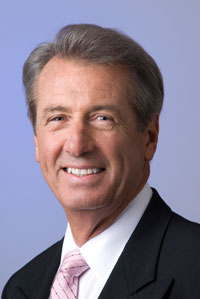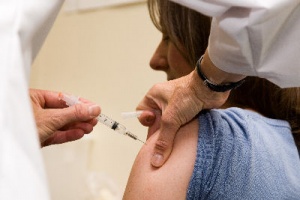October 2nd, 2009 by Dr. Val Jones in Expert Interviews, News, Video
1 Comment »
We’ve all heard about the importance of getting our flu shots this season, but did you know that there are 10 vaccines commonly recommended for adults? I spoke with Dave Lucas at ABC News about the low rates of adult vaccinations in the US, and encouraged people to ask their doctors if they’re up to date with their vaccinations.
httpv://www.youtube.com/watch?v=yi6HnmHIHCA
On September 30th I participated in a social media event with the Immunization Action Coalition and learned from Executive Director, Dr. Deborah Wexler that: Read more »
September 27th, 2009 by Gwenn Schurgin O'Keeffe, M.D. in Better Health Network, Health Tips, Video
No Comments »

If you’re a bit confused about the H1N1 vaccine recommendations, you are in good company! They are a bit confusing because this year’s flu season is a bit confusing. To add insult to injury, the recommendations for H1N1 are just similar and dissimilar enough from “seasonal flu”, Influenza A&B, that sorting it out can make your head spin and your tongue get tied.
Kim Carrigan and I attempted to clear the air about this challenging topic recently on Fox News Boston…as you’ll see, I even got tripped up once, so don’t feel badly if you’re a bit confused!
Read more »
*This blog post was originally published at DrGwenn Is In*
August 20th, 2009 by BarbaraFicarraRN in Better Health Network, Health Tips
No Comments »

A Guest Blog by Kevin Soden, MD

I ran into an old friend this past week and, as all of us over 60 do, we began talking about our health and the various ailments afflicting us as we age.
He shared with me that he was currently dealing with a bad case of the “shingles” (known as Herpes Zoster in medical circles) at age 65 and how terribly painful they were. He said that he wouldn’t wish them on his worst enemy.
As many of you may know because you’ve suffered a similar problem, shingles is caused by the Varicella Zoster virus, the same virus that causes chickenpox.
Only someone who has had a case of chickenpox – or gotten chickenpox vaccine – can get shingles. The virus stays in your body and it can reappear many years later to cause a case of shingles.
Always being the doctor, I asked my friend whether or not he’d gotten the vaccine to help reduce his risk of getting shingles.
He acted shocked and was quite angry as he explained that he’d never been told by his doctor about that there was a vaccine available that might prevent shingles.
The vaccine available for adults 60 and over to prevent shingles is called Zostavax. In clinical trials, the vaccine prevented shingles in about half of people 60 years of age and older. Even if you do get shingles after being vaccinated, it may help reduce the pain associated with shingles but it cannot be used to treat shingles once you have it.
I’m really not pushing the Zostavax vaccine because it’s not recommended for everyone but rather am reminding everyone that prevention is much better than treating after someone has a disease.
Talk to your doctor at your yearly visit to see what preventive steps you should be taking.
Check the CDC website for more information about vaccines that might be right for you especially if you are traveling to other countries.
Frankly, if your doctor is not talking to you about preventing disease, then it just might be time to find another doctor.
About Kevin Soden, MD
Dr. Kevin Soden has been a medical journalist for over 20 years appearing on CBS, NBC and most recently on NBC’s Today Show. He now serves as the host for Healthline, the national award-winning daily medical television show seen on the Retirement Living Network. He also serves as the worldwide Medical Director for Texas Instruments and Cardinal Health and teaches as a courtesy Professor at the Univ. of Florida College of Medicine.
His awards include 3 Telly’s, the 2008 CableFax award for best cable health show, the 2008 and 2001 National Award for Excellence in Medical Reporting from the National Association of Medical Communicators, a finalist for the International Freddie Awards in 2001, and as the Executive Producer for Rush of the Palms received the 2003 International Film Critics award for short films.
Kevin published The Art of Medicine: What Every Doctor and Patient Should Know…a critically acclaimed book focusing on improving doctor-patient communications. He is also the primary author of a consumer medical book Special Treatment: How to Get the High-Quality Care Your Doctor Gets. He is also a contributing author to the recently published A Practical Approach to Occupational and Environmental Medicine and to Physician Leaders: Who, How and Why Now? He has just finished his third book Think Like a Man: Male Behaviors that Can Help Woman Lighten the Load, Loosen Up and Find Happiness in a Stress-Filled World. He also is a regular contributor to numerous popular magazines.
Soden graduated with honors from the University of Florida College of Medicine and is one of the original inductees into the UF Medical Wall of Fame. He also has a Masters in Public Health from the Medical College of Wisconsin and a Masters in Personnel Administration from Florida State University.
*This blog post was originally published at Health in 30*
November 4th, 2008 by Dr. Val Jones in Opinion, True Stories
5 Comments »
Election anxiety has America on the edge of its seat. I anticipated long lines and a lot of drama, so I voted early to avoid the rush. That left me with nothing election-related to do today, so I decided to head over to my local pharmacy and get a flu shot instead.
Last year the flu vaccine was only 50% effective because experts did not correctly predict which viral strains would victimize Americans. This year I have my fingers crossed that the Brisbane and Florida strains included in the vaccine will do the trick. After all, Influenza is the single leading cause of vaccine-preventable disease in the U.S., with estimates between 15 million and 60 million cases in the US a year among all age groups. Influenza leads to 200,000 hospitalizations and about 36,000 deaths a year in the U.S., mostly in infants and the elderly. I’ll never forget the touching story of how one family lost their three and-a-half year-old daughter to the flu.
So I arrived at the pharmacy only to find a disorderly group of flu-shot seekers, pacing near the entrance to the retail clinic. About 20 minutes later a young woman with a clipboard and sign up sheets came out and started asking people what kind of insurance they had. When my turn came she informed me that my insurance plan was not participating, and suggested that I leave. I asked if I could pay out-of-pocket for the shot and she said that I could and gave me a consent form. More people arrived without any movement in the line, and I overheard one person commenting that the nearby polling booth wasn’t moving as slowly. Another customer decided to leave to go vote and then come back later for the shot.
Forty minutes later my name was called and I entered a small room littered with papers and syringe caps. I rolled up my right sleeve and asked the technician about his injection technique. I watched him carefully draw up half a cc of vaccine from a multiple-use bottle.
He then asked me how I was going to pay. I presented my credit card and he said that he only accepted cash or check. I said that I had no idea that credit cards weren’t accepted and he seemed surprised that I wasn’t aware of the retail clinic policy. A large envelope was leaning against his chair leg, full of $30 cash deposits for the shot. Read more »














